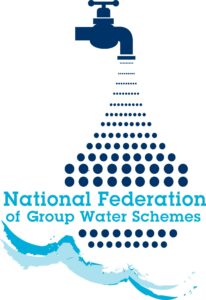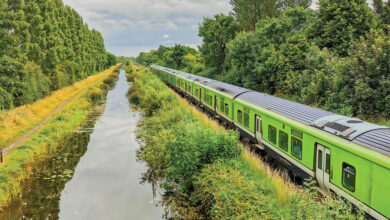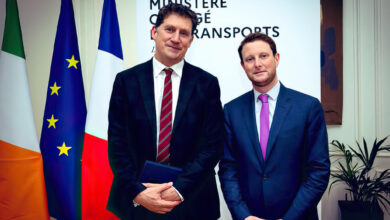Group water schemes leading efforts to protect the environment
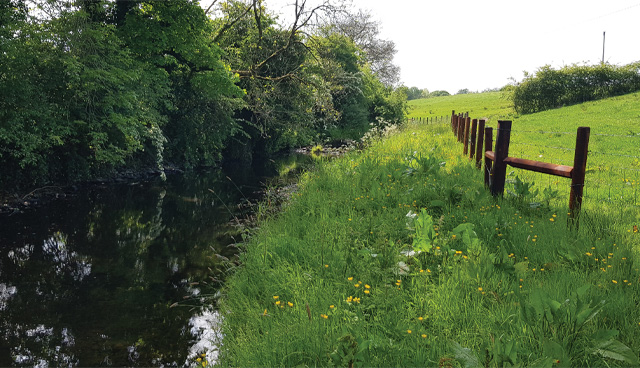
What do trees and bees have to do with water quality? Quite a lot, according to the National Federation of Group Water Schemes (NFGWS), which is promoting care for biodiversity as a core element of a wider Integrated Source Protection Planning (ISPP) strategy to protect and improve Ireland’s aquatic environment, including drinking water sources, and as a safeguard against the impacts of climate change on the sector.
Impressed at the novel approach of the NFGWS, two government departments have recently agreed to collaborate by providing financial support towards elements of the Federation’s source protection strategy. In March, the Department of Agriculture, Food and the Marine (DAFM) announced funding for the implementation on seven GWS catchments of targeted measures to mitigate against identified agricultural pressures in ISPPs, while the Department of Housing, Local Government and Heritage (DHLGH) is supporting the development of ISPPs on 14 group water schemes this year and supporting the employment of dedicated staff to further the ambitious environmental objectives set out in the Federation’s six-year strategic plan.
This ground-breaking, inter-departmental approach to addressing environmental issues at source catchment level will not only assist in identifying a potential model for such work on more community-run drinking water supplies but has the potential to inform future agri-environmental schemes and other biodiversity and climate action plans.
Responding to the emergency
Following the declaration of a climate and biodiversity emergency by both Houses of the Oireachtas in May 2019, the voluntary Board of the NFGWS responded immediately by assigning development officers with special responsibility for climate action and biodiversity enhancement respectively.
A dedicated Biodiversity Enhancement Strategy for the rural water sector was launched in autumn 2019 and, in 2020, a guidance document was published by the Federation aimed at better protecting biodiversity during GWS capital works. Throughout the development of these and other documents, the NFGWS worked closely with the National Biodiversity Data Centre, pledging full support for its All-Ireland Pollinator Plan.
With a dedicated Climate Action Plan scheduled to be launched at the NFGWS Rural Water Webinar conference in September, Federation CEO, Barry Deane says that there is growing evidence that climate change is happening even faster than was predicted a few years ago, adding:
“The group water scheme sector is determined to do everything it can to contribute to the national and global effort. Focusing primarily on substantially reducing daily water demand across the sector, we aim to reduce the carbon footprint of group water schemes and to build their resilience in the face of weather events that will become more and more extreme in the years and decades ahead. We can only achieve these objectives if we work with natural ecosystems and end our over-reliance on technological solutions to every challenge.”
Protecting the source
The Federation’s approach to drinking water source protection underlines the point made by Deane. Since 2005, the NFGWS has piloted low-tech approaches to water protection, as opposed to end-of-pipe treatment solutions. Since then, it has completed the delineation/mapping of virtually every GWS source catchment and has piloted several major initiatives aimed at better protecting sources, including a joint project with the EPA designed to provide a community approach to managing septic tanks. Emphasising the importance of the pilot projects in informing the Federation’s current approach, Deane said: “Although a safe and wholesome drinking water supply can be delivered through effective treatment barriers, we subscribe to the World Health Organisation (WHO) view that sees source protection as the primary barrier to contaminants. The simple fact is that the prohibitive cost of dealing with a contaminant such as herbicide at treatment stage means that we have no choice but to tackle this issue at source and we know that by tackling other contaminants, such as faeces and nutrients, we can significantly improve the performance of our treatment plants and reduce running costs.”
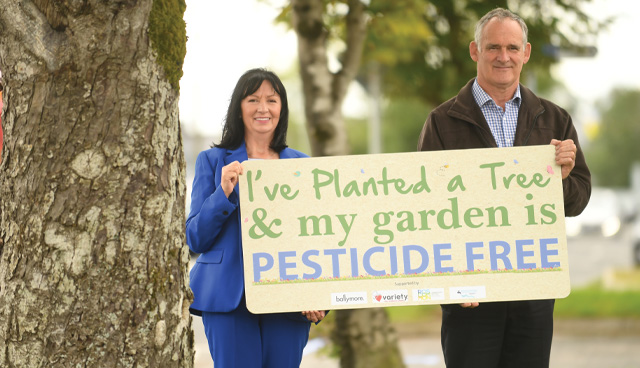
With approximately 360 privately sourced and community-owned group water schemes (GWS) operating across the country, the sector’s source protection initiatives have the potential to play a key role in achieving the objectives of the River Basin Management Plan (RBMP), the European Green Deal and other environmental initiatives.
The pilot projects have inspired two scientifically grounded documents, published by the NFGWS: A Framework for Drinking Water Source Protection and A Handbook of Source Protection and Mitigation Actions for Farming, as well as providing practical examples of targeted actions that enable GWSs to lead and encourage wider participation in their source protection efforts.
Integrated source protection planning
To date, nine group water schemes have developed scientifically based ISPPs, scheme-specific plans that provide a framework for communities to work together to help protect or improve local water bodies. ISPPs are created through an amalgam of untreated water monitoring results, desktop studies and catchment walks.
The WHO’s ‘water safety planning’ approach is also at the core of every ISPP, focusing on a continuous improvement cycle that identifies hazards, develops appropriate and targeted improvement actions, and monitors the results of these before the cycle begins again.
Funded through the Multi-Annual Rural Water Programme (MARWP), the implementation of these ISPPs on group water schemes in Counties Monaghan and Roscommon has supported farmers installing vegetative strips along critical pollutant pathways on their lands to slow down or capture nutrient run-off. These ‘smart buffer zones’ are just one of a wide range of mitigation actions on farms, that includes fencing around water courses, promoting low emission slurry spreading and reduced pesticide use.
Plant a tree and let it bee
In Roscommon, an ‘I’ve planted a tree and my garden is pesticide free’ initiative sought to raise awareness about the link between water quality and biodiversity, highlighting especially the environmental dangers posed by domestic use of pesticides. Primary school pupils across the county were given a tree to plant at home, along with easily understandable educational materials, certificates, and bin stickers to help spread the message.
The ‘Let it Bee’ initiative involves the provision of honeybees, hives, suits, and the necessary equipment, as well as training and mentoring, to a number of Roscommon farmers in group water scheme source catchments. The habitat required by a honeybee and by wild bees generally has real benefits for water quality also. Bee hotels constructed by a local mental help support group were provided to GWS households to generate awareness about the need to protect and provide suitable habitat and food sources for solitary bees also.
These initiatives perfectly encapsulate the close links between drinking water source protection, the wider environment and local community, with the farmers acting as ambassadors for biodiversity enhancement. They are also centred around social inclusion and working together for the betterment of the community, in keeping with the ethos of the co-operative movement.
In December 2020, the Let it Bee initiative won the European Landowners’ Organisation’s European Bee Award, providing affirmation that Europe is keenly aware of the leading role being played by Ireland’s community-owned drinking water sector in addressing the great environment issues of our time.
Mark Farrelly
T: 087 612 4089
E: mark@nfgws.ie
W: www.nfgws.ie
Twitter: @nfgws
Facebook: National Federation of Group Water Schemes
LinkedIn: National Federation of Group Water Schemes
